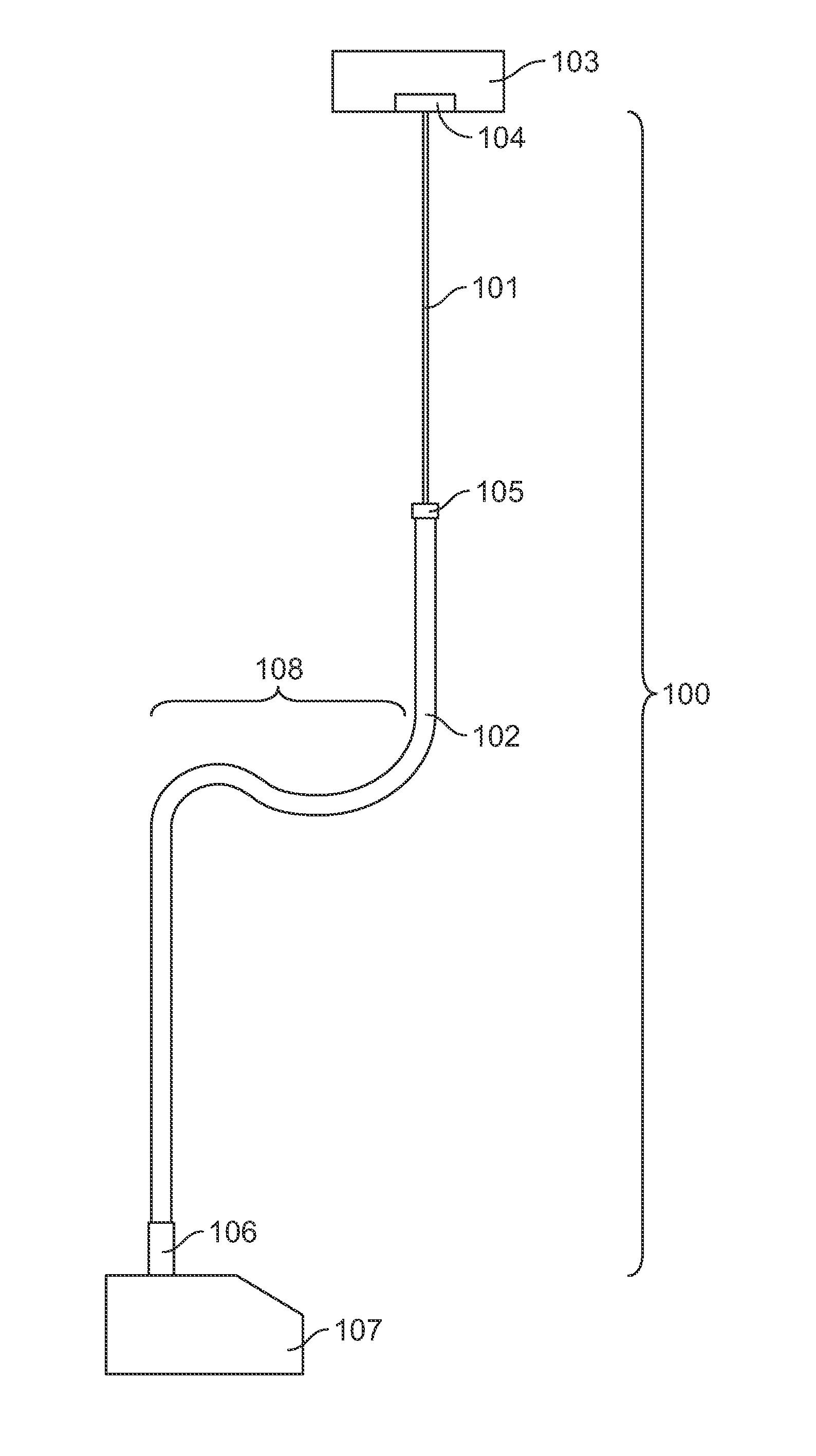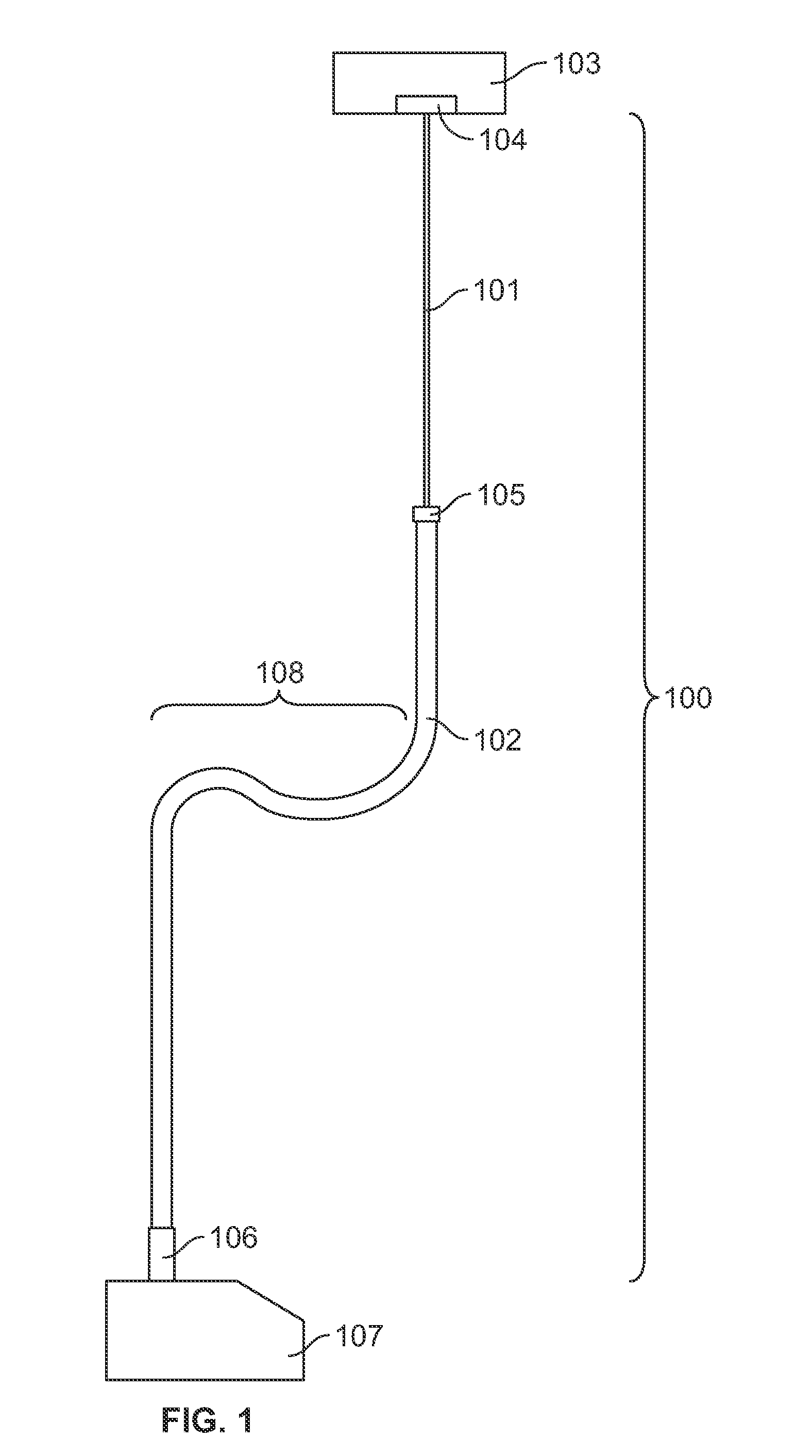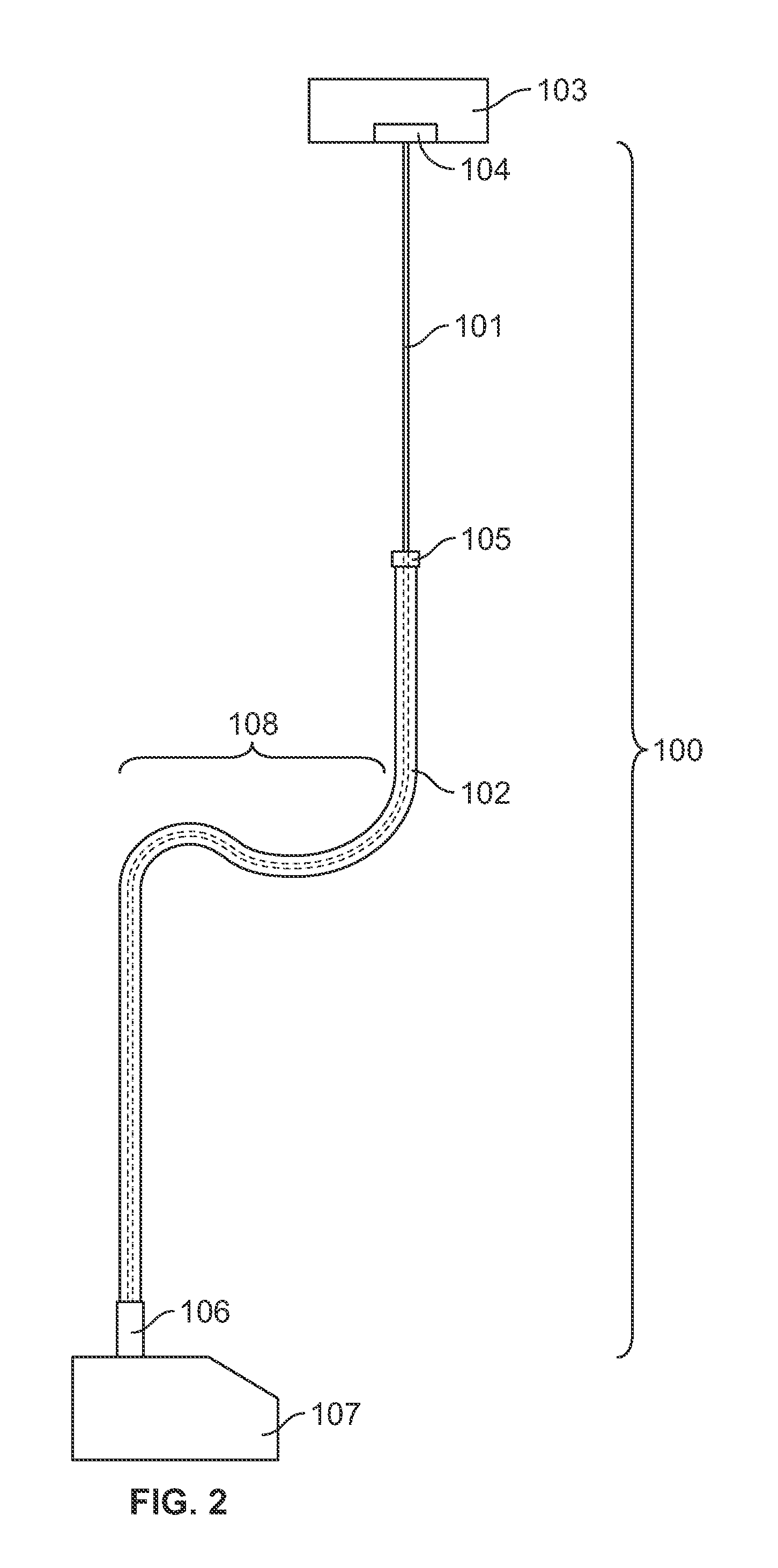Mechanical tether system for a submersible vehicle
a mechanical tethering and submerged vehicle technology, applied in the field of light-weight tethering systems, can solve the problems of damage to the tether system and the attached load, high cost of kevlar® tethering systems or the like, and material while suitable signal carriers are generally not useful for load bearing operations,
- Summary
- Abstract
- Description
- Claims
- Application Information
AI Technical Summary
Benefits of technology
Problems solved by technology
Method used
Image
Examples
example 1
[0130]The following example describes one specific embodiment of the inventive lifting tether system 100, which is included to further illustrate certain aspects and operation of the invention and is not intended to limit the scope of the invention. Any dimensions included in the referenced Figures are included solely for exemplary purposes, and different dimensions, both greater and smaller, can be used.
Overview
[0131]Design, fabricate, and test a novel Electro-Optical-Mechanical (EOM) Remote Operated Vehicle (ROV) lifting tether system 100 that is capable of lifting a vehicle 107 over the side into and out of the water during launch and recovery operations. This example describes an approach by which a standard steel-armored EOM cable (i.e. connecting segment 101) and a conventional strength member EOM cable (i.e. lifting segment 102) are configured to meet the desired aspects for deployment, operations, and recovery. A significant challenge is presented in the design of the connec...
PUM
 Login to View More
Login to View More Abstract
Description
Claims
Application Information
 Login to View More
Login to View More - R&D
- Intellectual Property
- Life Sciences
- Materials
- Tech Scout
- Unparalleled Data Quality
- Higher Quality Content
- 60% Fewer Hallucinations
Browse by: Latest US Patents, China's latest patents, Technical Efficacy Thesaurus, Application Domain, Technology Topic, Popular Technical Reports.
© 2025 PatSnap. All rights reserved.Legal|Privacy policy|Modern Slavery Act Transparency Statement|Sitemap|About US| Contact US: help@patsnap.com



